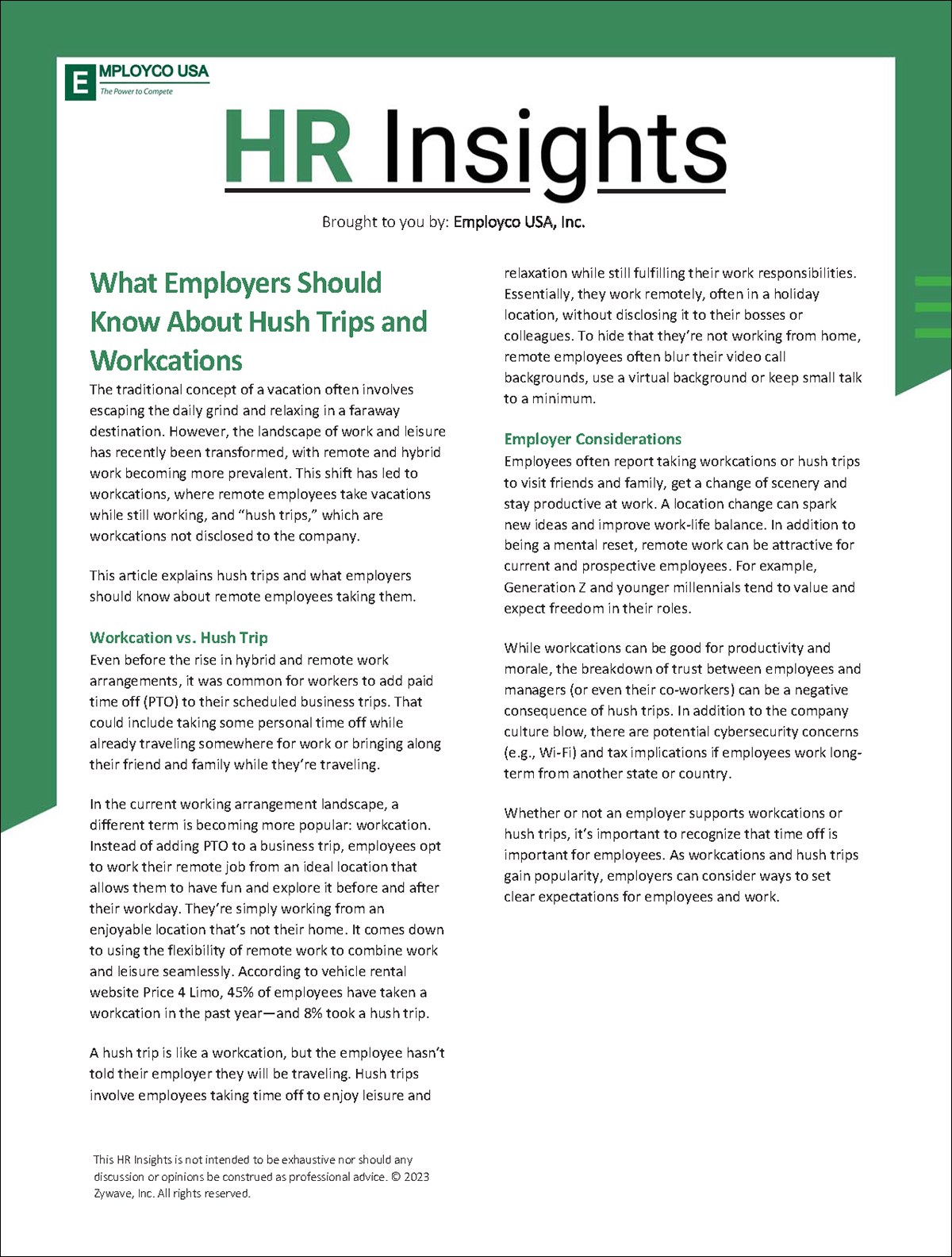
The traditional concept of a vacation often involves escaping the daily grind and relaxing in a faraway destination. However, the landscape of work and leisure has recently been transformed, with remote and hybrid work becoming more prevalent. This shift has led to workcations, where remote employees take vacations while still working, and “hush trips,” which are workcations not disclosed to the company.
Even before the rise in hybrid and remote work arrangements, it was common for workers to add paid time off (PTO) to their scheduled business trips. That could include taking some personal time off while already traveling somewhere for work or bringing along their friend and family while they’re traveling.
In the current working arrangement landscape, a different term is becoming more popular: workcation. Instead of adding PTO to a business trip, employees opt to work their remote job from an ideal location that allows them to have fun and explore it before and after their workday. They’re simply working from an enjoyable location that’s not their home. It comes down to using the flexibility of remote work to combine work and leisure seamlessly. According to the vehicle rental website Price 4 Limo, 45% of employees have taken a workcation in the past year—and 8% took a hush trip.
A hush trip is like a workcation, but the employee hasn’t told their employer they will be traveling. Hush trips involve employees taking time off to enjoy leisure and relaxation while still fulfilling their work responsibilities. Essentially, they work remotely, often in a holiday location, without disclosing it to their bosses or colleagues. To hide that they’re not working from home, remote employees often blur their video call backgrounds, use a virtual background, or keep small talk to a minimum.
